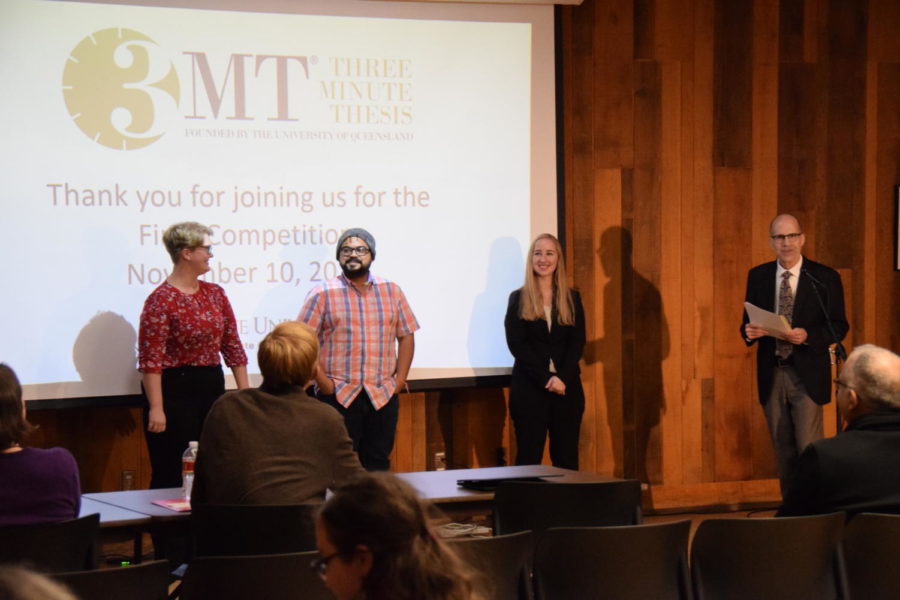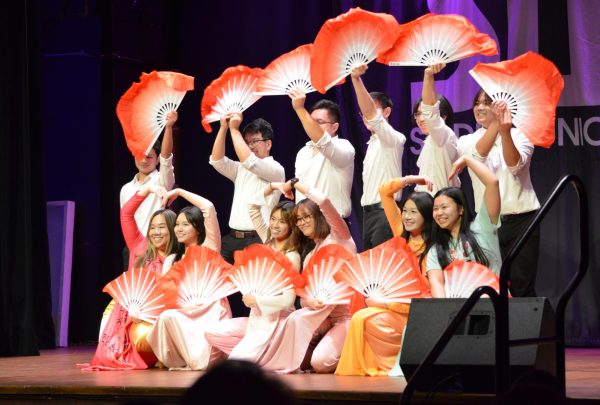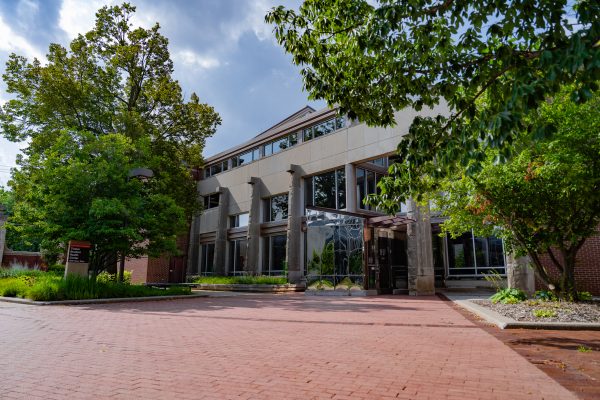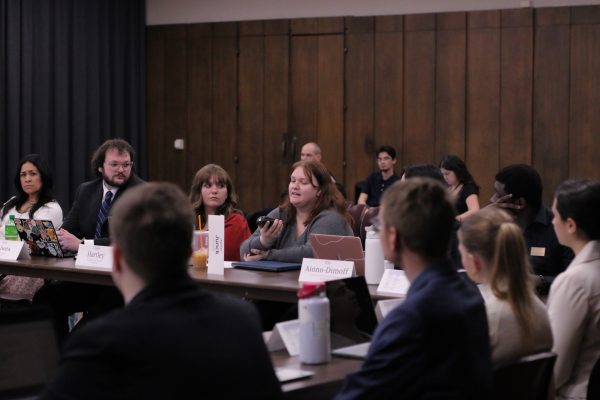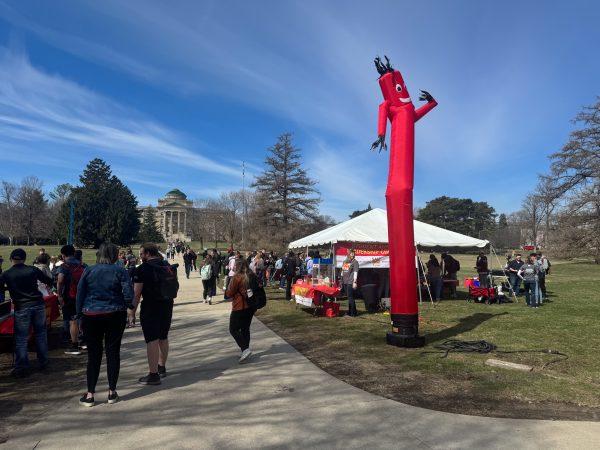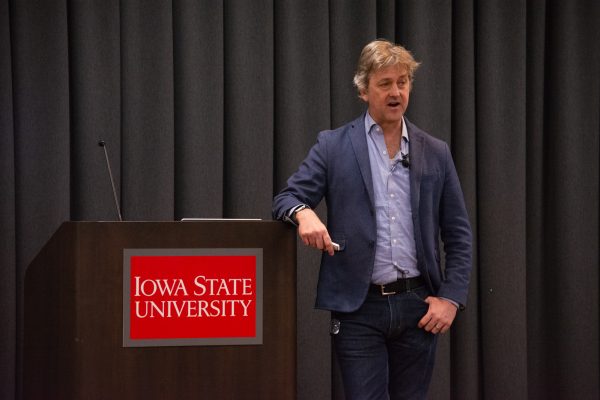Grad students compete: Presenting three-minute theses
Dean Graves announcing announcing the three first-place, second-place and People’s Choice Award recipients for the 2022 Three-Minute Thesis competition.
Iowa State’s Graduate College held a three-minute thesis competition allowing graduate students to practice their communication skills, compressing complex research into digestible and accessible formats.
Graduate students had three minutes to present their research and its implications within their field. Presentations included topics ranging from advanced drug delivery systems to optimizing the process behind methane production.
After a preliminary round that took place in October, eight finalists advanced to the final competition.
Abigail Schulte, a graduate student studying agricultural and biosystems engineering, won first place for her presentation titled: “Optimizing Solid-state Anaerobic Digestion of Prairie Grass and Dairy Manure.”
Presentations varied in style and energy level, as some participants took very informative approaches while others took less formal routes.
“A lot of our stuff can get very high level and very jargon-filled and confusing,” Schulte said. “So, I think focusing and making sure that, hey, this is relatable, this is how it’s going to directly impact you. I don’t think anybody really cares about what I’m doing in the lab every single day, but they care about what it does for them.”
Abesh Bera, a graduate student studying genetics development and cell biology, received second place, and Abigail Koep, a graduate student studying chemical and biological engineering, won the People’s Choice Award.
Bera said he was grateful for the opportunity to participate in the competition and the support he gained from professors and peers in the lab.
“I think last year I was in the finals and I could feel the heat and I can definitely say that this year, it was like 10 times more,” Bera said. “Everybody was so good.”
Koep said the People’s Choice Award came partly thanks to her numerous supporters from various groups on campus and back home. Koep said she received support from people from the chemical engineering department and the student organization, the Graduate Society of Women Engineers.
“As soon as I posted on Facebook, it got uploaded to the high school booster page, on all their social media, not just Facebook,” Koep said. “So then my brother was like, ‘Okay, well, I’m gonna vote for you and I’m gonna get my entire college baseball team to vote for you.’”
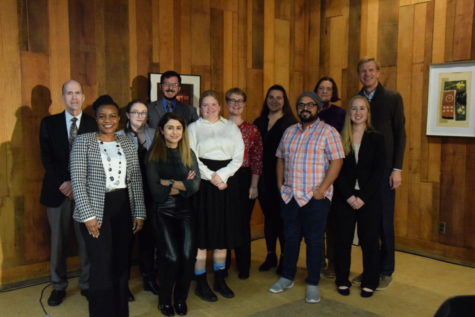
The first-place prize included a $500 scholarship and the opportunity to represent Iowa State at an upcoming event in Chicago by presenting the three-minute thesis. The second-place winner and the People’s Choice Award winner received a $250 scholarship.
“This type of communication helps students practice speaking about very complex topics, in a simplified way that can be inspirational and meaningful and educational, and very relatable to the general public,” said Dean of the Graduate College, William Graves.
This was the Graduate College’s seventh annual Three Minute Thesis competition. Graves said this was the most competitive to date, with over 100 graduate students signing up.
“It’s exciting that students are interested in doing this and seem to have fun doing it, and their graduate programs and their professors and support networks really encourage them and appreciate that they’re participating,” Graves said. “I really am grateful to the students too, because it’s completely voluntary.”
Judges for the competition included Bronwyn Beatty-Hansen, an Iowa State Alum and an at-large representative on the Ames City Council, Eric Hanson, an award-winning journalist who anchors KCCI 8’s morning news, and Joyce Mbugua, a data program manager with the Iowa Department of Health and Human Services.
“We all have our jargons in our jobs or in our community or in our life that people outside don’t know,” Hanson said. “And to put it into perspective from the people outside, just to be a good communicator, to understand your audience and be able to summarize and boil it down and explain things is a great skill to have.”
Mbugua said that it was interesting to see how students were excited to share the work they have conducted and contribute their knowledge to the wider world of applications.
“I’m kind of excited about that part, seeing students passionately convey the work that they’re doing or beginning to work on and how they feel it’s going to improve the body of knowledge that is available,” Mbugua said.
Your donation will support the student journalists of the Iowa State Daily. Your contribution will allow us to purchase equipment, send our student journalists to conferences and off-set their cost of living so they can continue to do best-in-the-nation work at the Iowa State Daily.


